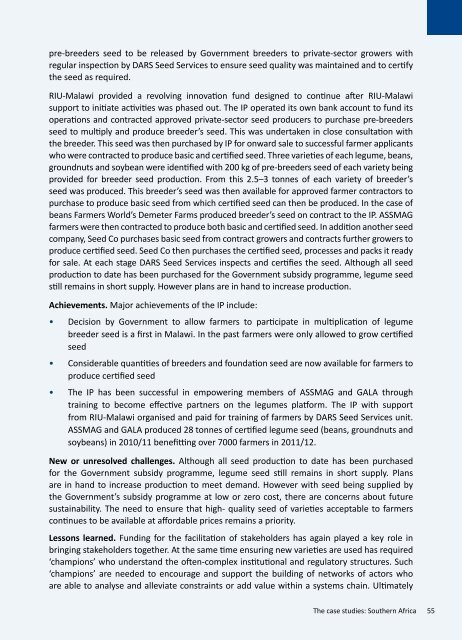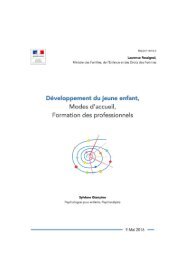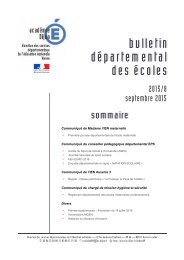agrl_innovations_in_ssa.pdf?utm_content=buffercb41d&utm_medium=social&utm_source=twitter
agrl_innovations_in_ssa.pdf?utm_content=buffercb41d&utm_medium=social&utm_source=twitter
agrl_innovations_in_ssa.pdf?utm_content=buffercb41d&utm_medium=social&utm_source=twitter
Create successful ePaper yourself
Turn your PDF publications into a flip-book with our unique Google optimized e-Paper software.
pre-breeders seed to be released by Government breeders to private-sector growers with<br />
regular <strong>in</strong>spection by DARS Seed Services to ensure seed quality was ma<strong>in</strong>ta<strong>in</strong>ed and to certify<br />
the seed as required.<br />
RIU-Malawi provided a revolv<strong>in</strong>g <strong>in</strong>novation fund designed to cont<strong>in</strong>ue after RIU-Malawi<br />
support to <strong>in</strong>itiate activities was phased out. The IP operated its own bank account to fund its<br />
operations and contracted approved private-sector seed producers to purchase pre-breeders<br />
seed to multiply and produce breeder’s seed. This was undertaken <strong>in</strong> close consultation with<br />
the breeder. This seed was then purchased by IP for onward sale to successful farmer applicants<br />
who were contracted to produce basic and certified seed. Three varieties of each legume, beans,<br />
groundnuts and soybean were identified with 200 kg of pre-breeders seed of each variety be<strong>in</strong>g<br />
provided for breeder seed production. From this 2.5–3 tonnes of each variety of breeder’s<br />
seed was produced. This breeder’s seed was then available for approved farmer contractors to<br />
purchase to produce basic seed from which certified seed can then be produced. In the case of<br />
beans Farmers World’s Demeter Farms produced breeder’s seed on contract to the IP. ASSMAG<br />
farmers were then contracted to produce both basic and certified seed. In addition another seed<br />
company, Seed Co purchases basic seed from contract growers and contracts further growers to<br />
produce certified seed. Seed Co then purchases the certified seed, processes and packs it ready<br />
for sale. At each stage DARS Seed Services <strong>in</strong>spects and certifies the seed. Although all seed<br />
production to date has been purchased for the Government subsidy programme, legume seed<br />
still rema<strong>in</strong>s <strong>in</strong> short supply. However plans are <strong>in</strong> hand to <strong>in</strong>crease production.<br />
Achievements. Major achievements of the IP <strong>in</strong>clude:<br />
• Decision by Government to allow farmers to participate <strong>in</strong> multiplication of legume<br />
breeder seed is a first <strong>in</strong> Malawi. In the past farmers were only allowed to grow certified<br />
seed<br />
• Considerable quantities of breeders and foundation seed are now available for farmers to<br />
produce certified seed<br />
• The IP has been successful <strong>in</strong> empower<strong>in</strong>g members of ASSMAG and GALA through<br />
tra<strong>in</strong><strong>in</strong>g to become effective partners on the legumes platform. The IP with support<br />
from RIU-Malawi organised and paid for tra<strong>in</strong><strong>in</strong>g of farmers by DARS Seed Services unit.<br />
ASSMAG and GALA produced 28 tonnes of certified legume seed (beans, groundnuts and<br />
soybeans) <strong>in</strong> 2010/11 benefitt<strong>in</strong>g over 7000 farmers <strong>in</strong> 2011/12.<br />
New or unresolved challenges. Although all seed production to date has been purchased<br />
for the Government subsidy programme, legume seed still rema<strong>in</strong>s <strong>in</strong> short supply. Plans<br />
are <strong>in</strong> hand to <strong>in</strong>crease production to meet demand. However with seed be<strong>in</strong>g supplied by<br />
the Government’s subsidy programme at low or zero cost, there are concerns about future<br />
susta<strong>in</strong>ability. The need to ensure that high- quality seed of varieties acceptable to farmers<br />
cont<strong>in</strong>ues to be available at affordable prices rema<strong>in</strong>s a priority.<br />
Lessons learned. Fund<strong>in</strong>g for the facilitation of stakeholders has aga<strong>in</strong> played a key role <strong>in</strong><br />
br<strong>in</strong>g<strong>in</strong>g stakeholders together. At the same time ensur<strong>in</strong>g new varieties are used has required<br />
‘champions’ who understand the often-complex <strong>in</strong>stitutional and regulatory structures. Such<br />
‘champions’ are needed to encourage and support the build<strong>in</strong>g of networks of actors who<br />
are able to analyse and alleviate constra<strong>in</strong>ts or add value with<strong>in</strong> a systems cha<strong>in</strong>. Ultimately<br />
The case studies: Southern Africa 55






